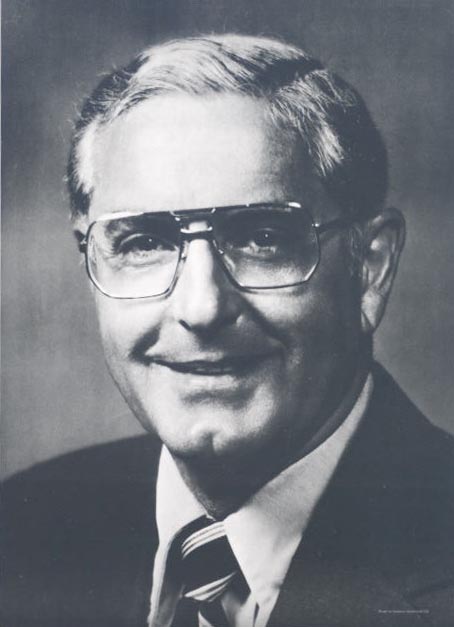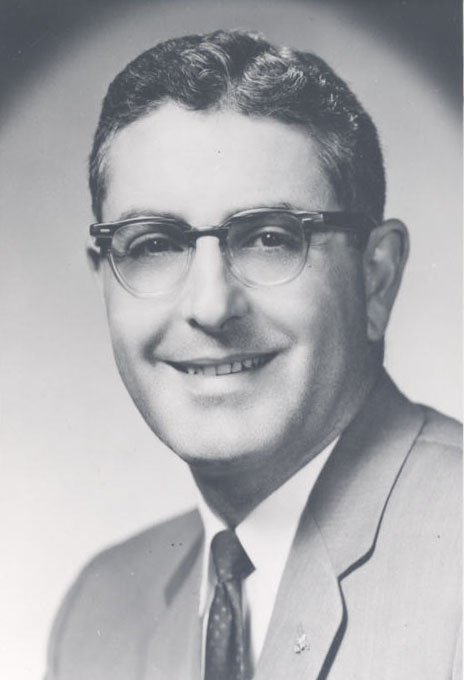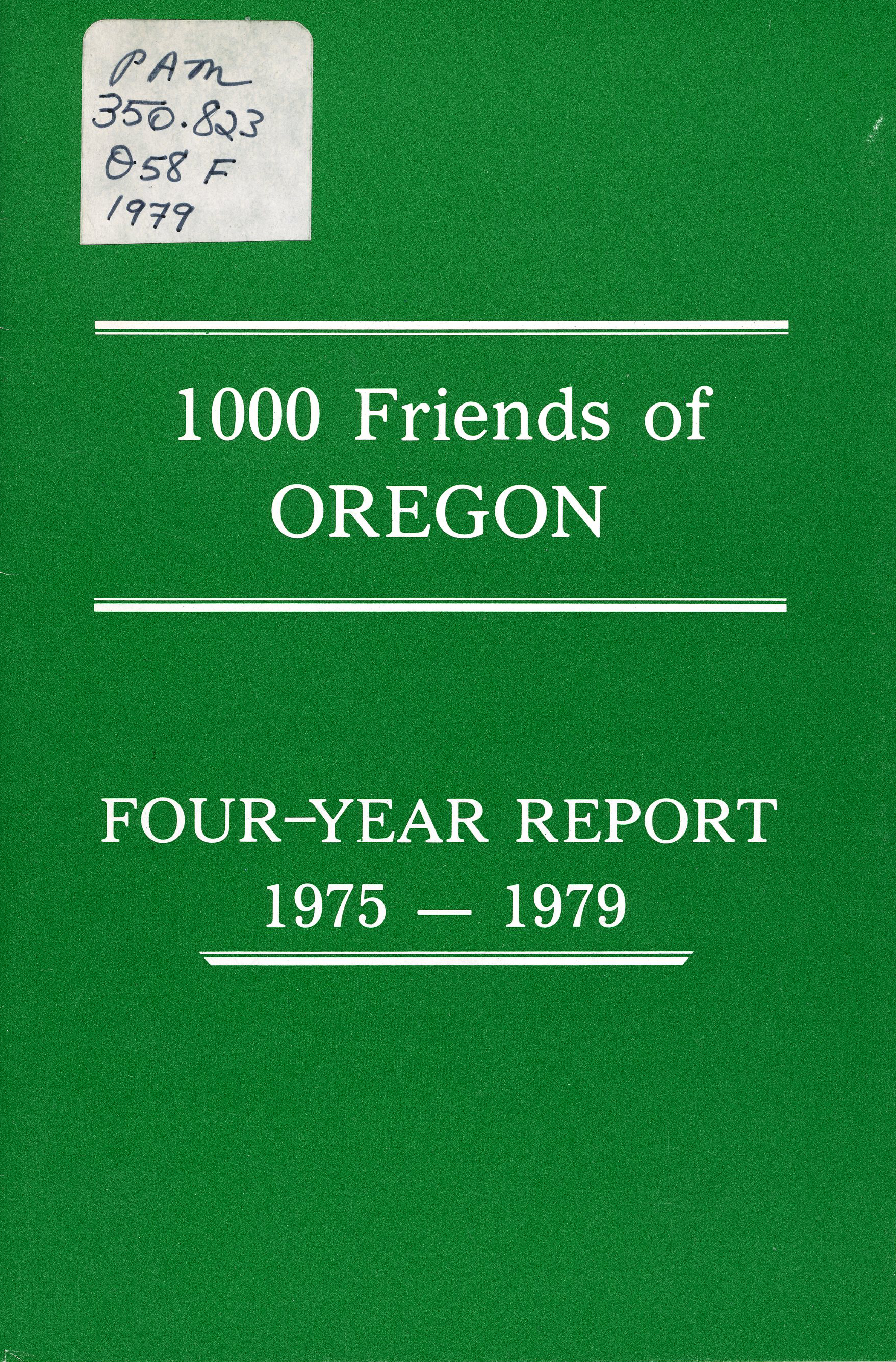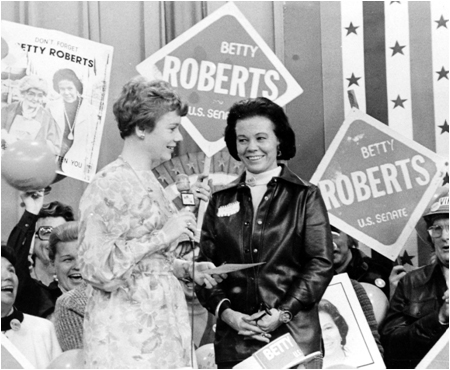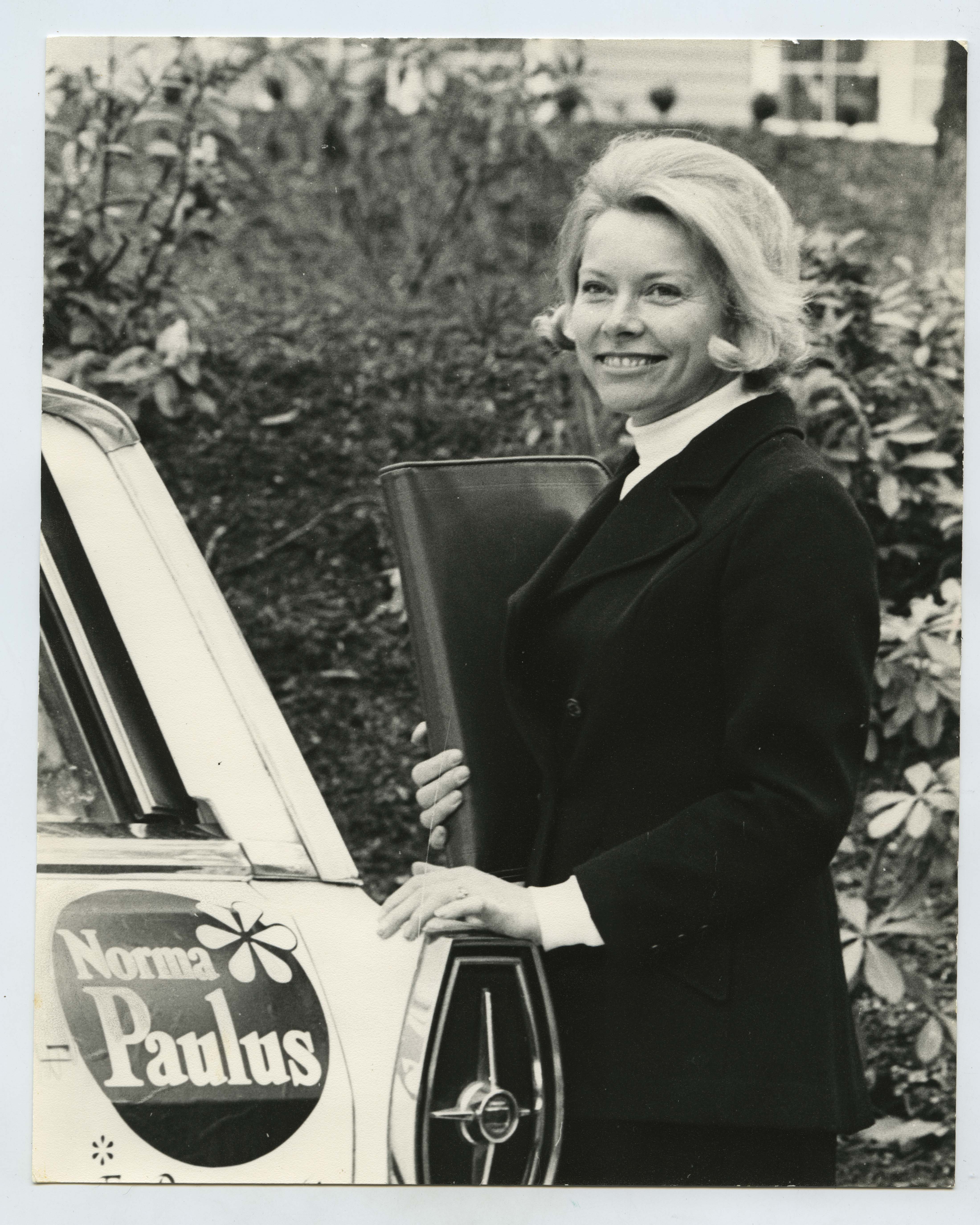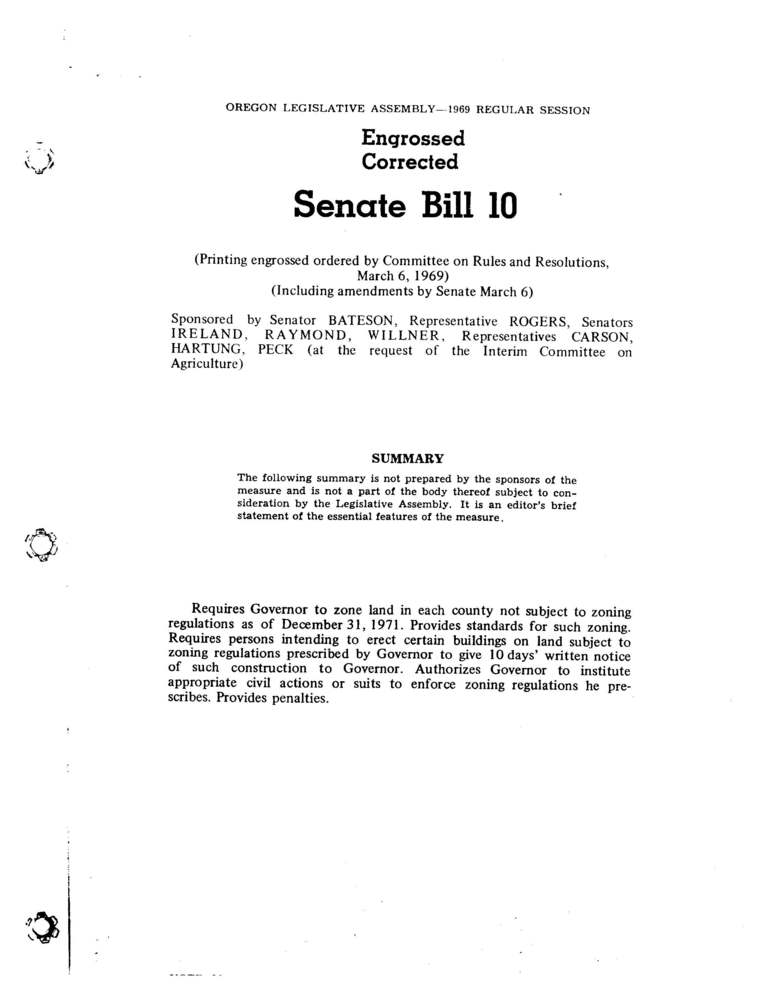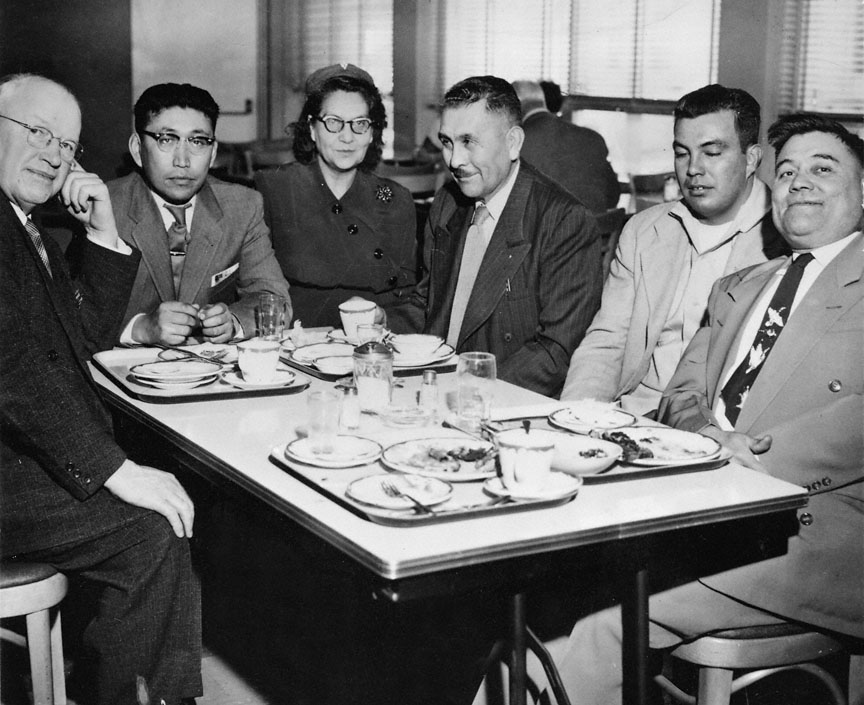Victor George Atiyeh was governor of Oregon from 1979 to 1987. The first Arab American governor in the United States, he became known as Trader Vic as he worked to bring international investment to the state. During his time in office, he dealt with the Rajneeshees in central Oregon in the 1980s, the effects of the 1980 eruption of Mount St. Helens in southwestern Washington, and Oregon’s worst recession since the Great Depression in the early 1980s.
Born in Portland on February 20, 1923, Atiyeh was the son of immigrants from the Ottoman Empire (modern-day Lebanon and Syria) and was raised with two older twin brothers in northeast Portland. The family started a carpet business in the early 1900s, and Atiyeh grew up sweeping out the warehouses and washing carpets during his school vacations. After World War II, he and his brothers ran the business as equal partners until Atiyeh was elected governor in 1978.
Atiyeh won a seat in the Oregon House as a Republican in 1958. Representing Washington County, Atiyeh ran for office to bring a business perspective to the legislature. His goal was the careful spending of public dollars. It was the beginning of twenty years of service in the Oregon legislature—from 1959 to 1964 in the House and from 1965 to 1978 in the Senate. Always in the minority party, Atiyeh nevertheless played a central role in the creation of Oregon’s environmental and land-use laws. He developed a reputation as an expert on state finances. In 1974, Atiyeh was the Republican nominee for governor. Defeated by Democrat Robert Straub, Atiyeh went back to work in the Oregon Senate.
In the 1978 Republican gubernatorial primary, Atiyeh defeated Roger Martin, the Republican leader of the Oregon House, and former governor Tom McCall, who was attempting to return to the governorship after serving in 1967–1975. In the general election, he defeated Governor Straub and took office in January 1979.
Government finance, taxation, and economic growth were important to Atiyeh, and he had an opportunity during his term in office to shape the Oregon economy. He completed the implementation of Oregon’s land-use law, getting all cities and counties in Oregon to phase in their master plans. The national recessions of 1980 and 1982 brought profound changes to the state, with the timber industry hit particularly hard. As locally owned mills and land were sold off to large out-of-state corporations, Atiyeh redoubled his efforts to recruit businesses to Oregon that would stay in the state for the long term.
Atiyeh traveled many times to East Asia to attract businesses to Oregon. In Oregon, a statue of Atiyeh stands in the international concourse of the Portland International Airport to honor his work in connecting Oregon to the world. Atiyeh’s efforts were rewarded at the ballot box. He won reelection in 1982 with a record 61.6 percent of the vote.
A key to attracting large businesses was repealing the unitary tax, which levied a tax on the Oregon portion of a corporation’s worldwide income. Several international companies were interested in moving to Oregon, but the unitary tax kept them out. Atiyeh worked with the legislature to repeal the tax in 1984, a move that attracted many of the companies that helped Oregon’s Silicon Forest take off in the 1980s and 1990s. His personal relationships with heads of state and company leaders raised Oregon’s profile as a place for major investment, just as California was becoming too expensive for many firms.
Atiyeh also strongly supported Senator Mark Hatfield’s efforts to create the Columbia River Gorge National Scenic Area. Atiyeh’s “governors plan” proposal with Washington governor John Spellman (R) led to the Washington congressional delegation’s first support for the Columbia Gorge legislation. Atiyeh also spearheaded a private fundraising effort to purchase land along the Deschutes River to create a state park and public access for all.
Atiyeh appointed Oregon’s first female Supreme Court Justice, Betty Roberts, and he had the first female chief of staff, Gerry Thompson. In 1981, he pushed for one of the earliest laws against hate crimes in the country. Reflecting his own upbringing among neighbors from diverse cultures in northeast Portland, he felt "that people from other groups were 'on the same level' as him. They were 'just people I grew up with.'" Atiyeh strongly encouraged his ombudsman, Jackie Winters, to create Oregon Food Share, which later became the Oregon Food Bank. Atiyeh worked with several tribal nations in Oregon as they gained recognition and power from the federal government. The Confederated Tribes of Warm Springs recognized his support with a lifetime fishing license for reservation waters.
Atiyeh faced a major challenge with the rise of the Rajneeshees, from 1981 to 1985. The group settled on a ranch eighteen miles from Antelope in central Oregon, took over the politics of the town, and made threats to public officials in Wasco County and in Salem. In a political tug of war with the citizens of Antelope, the Rajneeshees registered their members to vote and took over the city council. An attempt to do the same in Wasco County involved busing in homeless people from the Portland area who would vote for the Rajneeshee candidates. Oregon Secretary of State Norma Paulus led the public effort to deal with Rajneeshee electoral violations, and it was Atiyeh’s behind-the-scenes bargaining with the Rajneeshees, managed by Gerry Thompson, that led to the disintegration of the group’s leadership team. Atiyeh saw the issue as a balance between public safety and freedom of expression. He never met face-to-face with representatives of the Rajneeshees, and he always carried an unsigned executive order that would have declared martial law in Wasco and Jefferson Counties.
Atiyeh served as an unofficial United States ambassador to the Middle East. On a 1984 trade trip, he met with Syrian president Hafez Assad, as well as leaders in Saudi Arabia, Egypt, and Israel. After leaving the governorship in 1987, Atiyeh began a long career as an international business consultant. He also continued his work with numerous community organizations, including OMSI, Special Olympics, and the Boy Scouts of America. A Boy Scout in his youth, Atiyeh served in many adult leadership roles, including as president and commissioner for the Columbia Pacific Council.
Every governor since Atiyeh has been a Democrat. Atiyeh did not, however, think of himself as the last Republican governor. Instead, he considered himself the "most recent” Republican governor. Governor Atiyeh passed away in July 2014.
-
![Vic Atiyeh, photo from his campaign poster, 1978]()
Vic Atiyeh, photo from his campaign poster, 1978.
Vic Atiyeh, photo from his campaign poster, 1978 Courtesy Oreg. Hist. Soc. Research Lib., 024125
-
![Victor Atiyeh, 1963]()
Victor Atiyeh.
Victor Atiyeh, 1963 Courtesy Oreg. Hist. Soc. Research Lib., OrHi 002687
Related Entries
-
![1000 Friends of Oregon]()
1000 Friends of Oregon
1000 Friends of Oregon was founded in 1975 by Governor Tom McCall and a…
-
![Betty Roberts (1923-2011)]()
Betty Roberts (1923-2011)
Betty Roberts was a thirty-two-year-old housewife with four children wh…
-
![Mark O. Hatfield (1922-2011)]()
Mark O. Hatfield (1922-2011)
As an Oregon legislator, secretary of state, governor, and United State…
-
![Norma Petersen Paulus (1933-2019)]()
Norma Petersen Paulus (1933-2019)
Norma Paulus was a forward-thinking, practical-minded Republican leader…
-
Rajneeshees
Bhagwan Shree Rajneesh, a spiritual teacher who developed a substantial…
-
![Robert Straub (1920-2002)]()
Robert Straub (1920-2002)
Robert W. Straub, Oregon’s thirty-first governor, was a plainspoken pol…
-
![Senate Bill 10]()
Senate Bill 10
The enactment of Senate Bill 10 in 1969 was a crucial step on the path …
-
![Senate Bill 100]()
Senate Bill 100
Signed into law on May 29, 1973, Oregon Senate Bill 100 created an inst…
-
![Termination and Restoration in Oregon]()
Termination and Restoration in Oregon
Termination Of the federal-Indian policies introduced to American Indi…
-
![Thomas William Lawson McCall (1913-1983)]()
Thomas William Lawson McCall (1913-1983)
Tom McCall, more than any leader of his era, shaped the identity of mod…
Map This on the Oregon History WayFinder
The Oregon History Wayfinder is an interactive map that identifies significant places, people, and events in Oregon history.
Further Reading
Moore, James. Governor Vic Atiyeh and the Transformation of Oregon. Carlton, Ore.: Ridenbaugh Press, 2025.
Atiyeh Collection. Pacific University Archives, Forest Grove, Ore.
Guggemos, Eva, ed. Atiyeh! The Governor Victor Atiyeh Collection at Pacific University. Forest Grove, Ore.: Pacific University, 2013.

